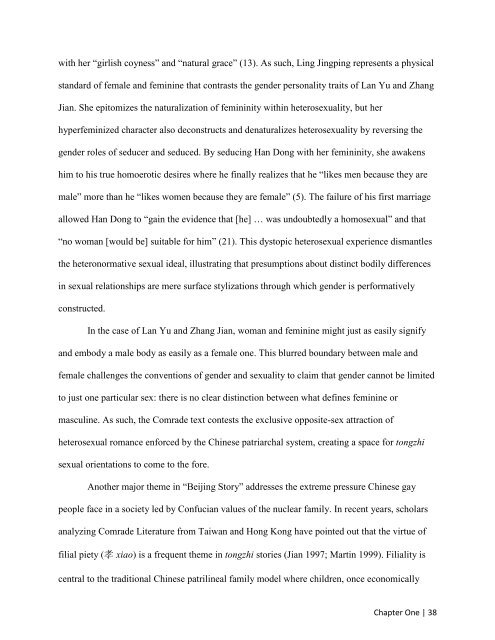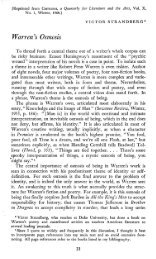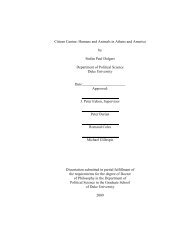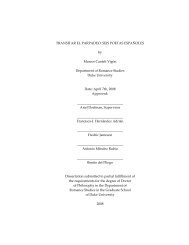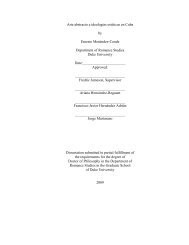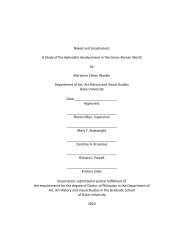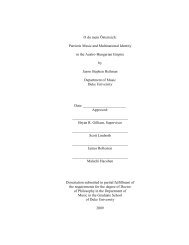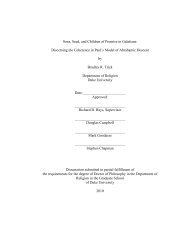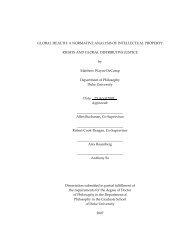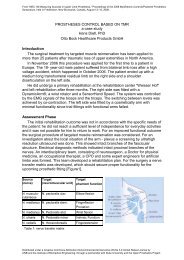View/Open - DukeSpace - Duke University
View/Open - DukeSpace - Duke University
View/Open - DukeSpace - Duke University
Create successful ePaper yourself
Turn your PDF publications into a flip-book with our unique Google optimized e-Paper software.
with her “girlish coyness” and “natural grace” (13). As such, Ling Jingping represents a physical<br />
standard of female and feminine that contrasts the gender personality traits of Lan Yu and Zhang<br />
Jian. She epitomizes the naturalization of femininity within heterosexuality, but her<br />
hyperfeminized character also deconstructs and denaturalizes heterosexuality by reversing the<br />
gender roles of seducer and seduced. By seducing Han Dong with her femininity, she awakens<br />
him to his true homoerotic desires where he finally realizes that he “likes men because they are<br />
male” more than he “likes women because they are female” (5). The failure of his first marriage<br />
allowed Han Dong to “gain the evidence that [he] … was undoubtedly a homosexual” and that<br />
“no woman [would be] suitable for him” (21). This dystopic heterosexual experience dismantles<br />
the heteronormative sexual ideal, illustrating that presumptions about distinct bodily differences<br />
in sexual relationships are mere surface stylizations through which gender is performatively<br />
constructed.<br />
In the case of Lan Yu and Zhang Jian, woman and feminine might just as easily signify<br />
and embody a male body as easily as a female one. This blurred boundary between male and<br />
female challenges the conventions of gender and sexuality to claim that gender cannot be limited<br />
to just one particular sex: there is no clear distinction between what defines feminine or<br />
masculine. As such, the Comrade text contests the exclusive opposite-sex attraction of<br />
heterosexual romance enforced by the Chinese patriarchal system, creating a space for tongzhi<br />
sexual orientations to come to the fore.<br />
Another major theme in “Beijing Story” addresses the extreme pressure Chinese gay<br />
people face in a society led by Confucian values of the nuclear family. In recent years, scholars<br />
analyzing Comrade Literature from Taiwan and Hong Kong have pointed out that the virtue of<br />
filial piety ( 孝 xiao) is a frequent theme in tongzhi stories (Jian 1997; Martin 1999). Filiality is<br />
central to the traditional Chinese patrilineal family model where children, once economically<br />
Chapter One | 38


